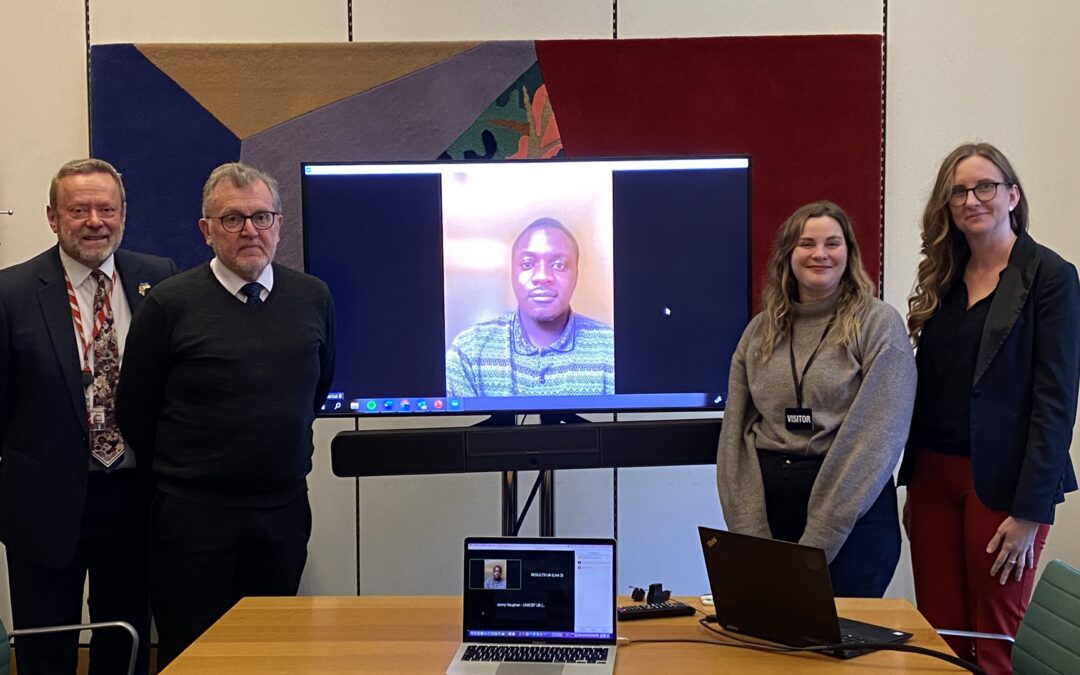On Monday 24th October, the APPG on Nutrition for Development hosted a roundtable on the impact of the war in Ukraine on Nutrition. Speakers included Emma Massey, Nutrition Adviser (Humanitarian/Health), FCDO; Webster Makombe, Youth Leader for Nutrition; and Jenny Vaughan, Senior Policy Advisor for Child Health, UNICEF.
Emma Massey began the discussion by highlighting how the response to the nutrition crisis must include more than just food. In a famine situation, it may seem that people die from a lack of access to food, but in reality the cause of death is often acute malnutrition or child wasting. A child that is wasted – that is, low weight for height – is twelve times more likely to die than a well-nourished child, and is far more susceptible to common childhood illnesses such as diarrhoea or pneumonia. Massey also noted how such undernutrition does not only happen during periods of food insecurity or crisis, but in fact often predates it.
However, Massey explained that there was a cost-effective and proven solution to severe undernutrition: Ready to Use Therapeutic Foods (RUTF). Rather than being a ‘food,’ RUTF is closer to a medicine, and provides the exact amount of nutrients a child needs.
Speaking next, Webster Makombe shed light on the perspective of young people in Zimbabwe and the region at large. Before the war, much of Zimbabwe’s food imports came from Ukraine, especially cooking oil and grain. Food prices have therefore gone up massively since Russia’s invasion. However, this has led to a movement pushing for the progressive transformation of food systems, focusing on indeingeous crops that can be produced locally and sustainability. As Makombe noted, it is dangerous to rely on just one country’s imports for food, but now is a moment with great potential for change.
Jenny Vaughan wrapped up our guest speakers’ initial comments by focusing on the Horn of Africa, particularly Kenya, Somalia, and Ethiopia. She stressed that the current crisis in these countries was not caused by the war in Ukraine, but exacerbated by it, as severe drought and regional conflict have also taken a severe toll. These factors compound to create a very dangerous situation, especially for children, who face increased risk of child labour, child marriage, and female genital mutilation.
Referencing Massey’s comments, Vaughan noted how lack of food was not the only issue, as oftentimes people become too malnourished to even eat typical foods, and must therefore be treated with RUTF. In order to address this crisis, she highlighted the necessity of immediate disbursement of the 2021 Nutrition for Growth Commitment, as well as long-term funding to help “prevent the cycle of famine.”
APPG co-chairs Lord Collins of Highbury and David Mundell MP agreed that smart and timely nutrition interventions were necessary. Collins pointed out that nutrition interventions have a multiplying effect, making other interventions in areas like education and immunisation more effective. He stressed that without a commitment to nutrition, other humanitarian actions become less effective. Mundell further noted that now was a crucial moment of reassessment, and a good time to refocus on effective, value-for-money nutrition programming.

